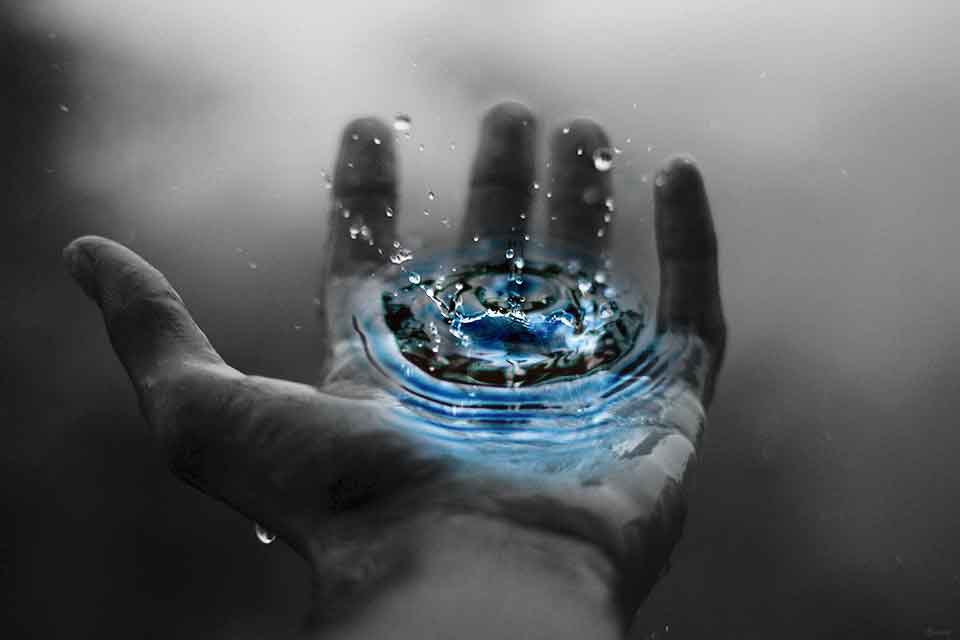

While the Bible does not offer health advice like "Drink 8 glasses of water a day," it consistently affirms the vital role of water, not in medical terms but as a rich theological symbol of life, grace, and renewal. Scripture uses water to reflect divine presence and promise, both physically and spiritually.
Physically, water is essential for life. This truth is universally understood and reflected in Scripture, even if not expressed in modern wellness language. In the Old Testament, water is closely associated with survival, prosperity, and divine blessing. For example, in Genesis 26, Isaac re-digs the wells of his father Abraham, reclaiming both physical sustenance and God's covenantal promise. In another instance, the Israelites, parched in the wilderness, cry out for water. In Exodus 17:1-7, God instructs Moses to strike the rock at Horeb (also known as Rephidim), and water flows forth as a powerful demonstration of divine provision amid desperation.
Other verses evoke water's importance for nurturing growth and abundance. Solomon, in Ecclesiastes 2:6, describes making pools to water his gardens. While the emphasis here is more on human achievement, it still affirms water's practical necessity in sustaining life and creation.
The book of Proverbs also highlights water's emotional and symbolic resonance. Proverbs 25:25 (KJV) offers a poetic comparison: "As cold waters to a thirsty soul, so is good news from a far country." The metaphor works because the audience understands the deep satisfaction that water brings to a parched body. Physical thirst becomes a bridge for understanding spiritual and emotional longing. The "good news" in this proverb can also be seen as a foreshadowing of the gospel itself. In this way, the proverb subtly prepares the reader for Christ's later promise of "living water" in John 4:10.
Beyond physical refreshment, Scripture turns to water as a symbol of spiritual life and renewal. In John 4:13-14 (KJV), Jesus speaks to the Samaritan woman at the well:
Whosoever drinketh of this water shall thirst again: But whosoever drinketh of the water that I shall give him shall never thirst; but the water that I shall give him shall be in him a well of water springing up into everlasting life.
Jesus acknowledges the reality of physical thirst while pointing to a deeper, eternal need that only he can satisfy. The water he offers is not for the body but for the soul, a wellspring of eternal life.
The prophet Isaiah echoes this theme in Isaiah 55:1 (KJV): "...every one that thirsteth, come ye to the waters." This invitation is not about physical hydration but about receiving the fullness of God's grace. The imagery of thirst and satisfaction draws people toward spiritual fulfillment. Water becomes a symbol of divine generosity, offered freely to all who seek.

In the New Testament, water also represents cleansing and transformation. Baptism, a central Christian practice, uses water to signify the washing away of sin and the beginning of new life in Christ. Romans 6:4 explains that believers are "buried with him by baptism into death, in order that, just as Christ was raised from the dead... we too might walk in newness of life." This act of immersion is both symbolic and sacramental, connecting the believer to Christ's death and resurrection. From the earliest days of the Church, as seen in Acts 8:36-38, new believers were baptized as an immediate response to faith. The waters of baptism became the tangible expression of spiritual renewal and belonging to the body of Christ.
The biblical narrative culminates with a vision of eternal restoration through water. Revelation 22:1 describes a "river of the water of life" flowing from the throne of God. This river nourishes the tree of life and brings healing to the nations. It is a final image of peace, abundance, and divine presence, a reminder that water remains at the heart of God's promise to renew all things.
While the Bible does not provide hydration guidelines or health tips, it presents water as a profound symbol of God's presence and provision. From physical thirst to spiritual renewal, from desert wells to rivers of eternal life, water in Scripture is never just a physical element. For believers today, this symbolism invites deeper reflection. It challenges us to see water not only as something we need but as something that reminds us daily of the one who truly satisfies. Whether refreshing the body, cleansing the soul, or pointing to eternal life, water flows through the pages of the Bible as a sacred metaphor for the living God.
He that believeth on me, as the scripture hath said, out of his belly shall flow rivers of living water.
—John 7:38, KJV
